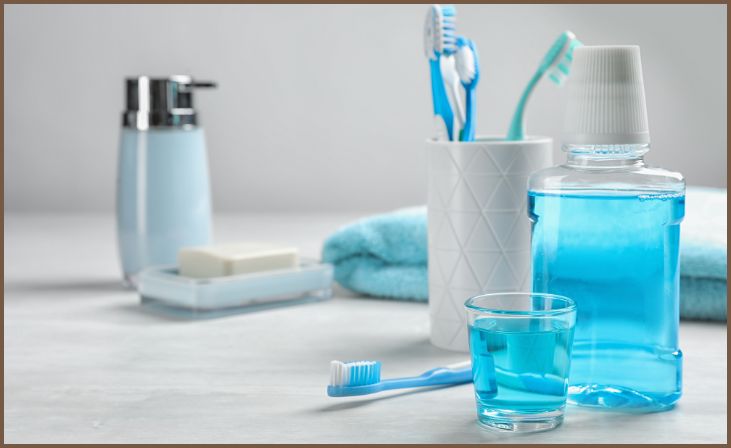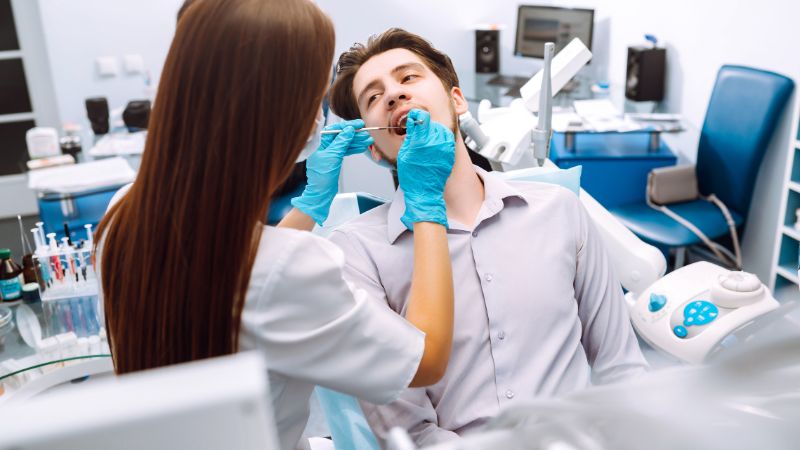Welcome to our guide on preventing dental woes and adopting proactive strategies for optimal oral health. Maintaining good oral hygiene is essential for overall well-being, yet many individuals overlook the importance of preventive dental care until problems arise. By implementing proactive measures and adopting healthy habits, you can minimize the risk of dental issues and enjoy a radiant smile for years to come.
In this comprehensive blog, we’ll explore a range of proactive strategies for preventing dental problems, from daily oral care routines to regular dental check-ups and lifestyle adjustments. Whether you’re concerned about cavities, gum disease, or tooth decay, our expert insights and practical tips will empower you to take charge of your oral health and achieve lasting results. Join us as we delve into the world of preventive dentistry and uncover the keys to a bright and healthy smile.
Preventing Dental Woes: Proactive Strategies for Oral Health
Establishing a Consistent Oral Hygiene Routine

Maintaining a consistent oral hygiene routine is essential for preventing dental woes and promoting optimal oral health. This routine should include brushing your teeth at least twice a day with fluoride toothpaste, flossing daily to remove plaque and food particles from between your teeth, and rinsing with an antimicrobial mouthwash to kill bacteria and freshen breath. By establishing good oral hygiene habits early on and sticking to them consistently, you can reduce the risk of cavities, gum disease, and other dental issues.
Also Read: The Science Behind a Beautiful Smile: Insights into Dental Aesthetics
Adopting a Balanced Diet
A balanced diet plays a significant role in maintaining oral health and preventing dental problems. Avoid excessive consumption of sugary and acidic foods and beverages, as they can contribute to tooth decay and erosion. Instead, opt for a diet rich in fruits, vegetables, lean proteins, and whole grains, which provide essential nutrients that support healthy teeth and gums. Drinking plenty of water throughout the day also helps wash away food particles and neutralize acids in the mouth, reducing the risk of cavities and enamel erosion.
Limiting Sugary and Acidic Foods

Sugary and acidic foods and beverages can wreak havoc on your teeth, leading to cavities, enamel erosion, and other dental issues. Limit your intake of sugary snacks, candies, sodas, and fruit juices, and opt for healthier alternatives whenever possible. If you do consume sugary or acidic foods, try to do so in moderation and rinse your mouth with water afterward to help neutralize acids and prevent them from damaging your teeth.
Avoiding Tobacco Products
Tobacco use is a significant risk factor for various oral health problems, including gum disease, tooth decay, oral cancer, and bad breath. If you currently use tobacco products, such as cigarettes, cigars, or smokeless tobacco, consider quitting as soon as possible to protect your oral health. Seek support from healthcare professionals, support groups, or smoking cessation programs to help you quit successfully and reduce the risk of dental woes associated with tobacco use.
Using Fluoride Products

Fluoride is a mineral that helps strengthen tooth enamel and prevent tooth decay. Incorporating fluoride products into your oral hygiene routine can help protect your teeth and reduce the risk of cavities. Choose toothpaste and mouthwash that contain fluoride, and consider asking your dentist about professional fluoride treatments or prescription fluoride supplements if you’re at a higher risk of cavities. Using fluoride products as directed can help keep your teeth strong and healthy for years to come.
Wearing Mouthguards During Physical Activity
Participating in physical activities and sports can increase the risk of dental injuries, such as broken or knocked-out teeth, fractured jaws, and soft tissue damage. To prevent these injuries, wear a mouthguard during sports and other high-impact activities to protect your teeth and gums from trauma. Custom-fitted mouthguards, provided by your dentist, offer the best protection and comfort, but over-the-counter options are also available for added convenience and affordability.
Managing Stress
Stress can have a negative impact on your oral health, contributing to teeth grinding, jaw clenching, and other oral habits that can lead to dental woes. Practice stress management techniques such as deep breathing, meditation, yoga, or regular exercise to help alleviate stress and reduce its effects on your oral health. Additionally, consider seeking professional help or counseling if stress and anxiety are affecting your overall well-being and dental health.
Avoiding Harmful Oral Habits

Certain oral habits can harm your teeth and gums and increase the risk of dental problems over time. Avoid habits such as biting your nails, chewing on ice or hard objects, using your teeth as tools, or engaging in excessive teeth grinding or clenching. These habits can cause tooth damage, enamel erosion, and jaw pain, leading to dental woes and costly treatments down the road. By breaking these harmful habits and practicing good oral hygiene, you can protect your oral health and prevent dental issues from occurring.
Conclusion
In conclusion, taking proactive steps to prevent dental problems is essential for preserving your oral health and overall well-being. By prioritizing regular dental check-ups, practicing good oral hygiene habits, and making lifestyle adjustments, you can significantly reduce the risk of dental woes such as cavities, gum disease, and tooth decay. Remember, prevention is key to maintaining a bright and healthy smile throughout your lifetime. With the insights and strategies shared in this guide, you’re equipped to embark on a journey towards optimal oral health and a confident smile.
FAQs
How often should I visit the dentist for preventive check-ups?
It is recommended to visit the dentist for preventive check-ups every six months. These appointments allow for early detection of dental issues and professional cleaning to maintain optimal oral health.
What are some effective preventive measures for maintaining oral hygiene at home?
Effective preventive measures include brushing teeth twice daily with fluoride toothpaste, flossing daily to remove plaque and food particles, limiting sugary foods and beverages, and using mouthwash to reduce bacteria and freshen breath.
